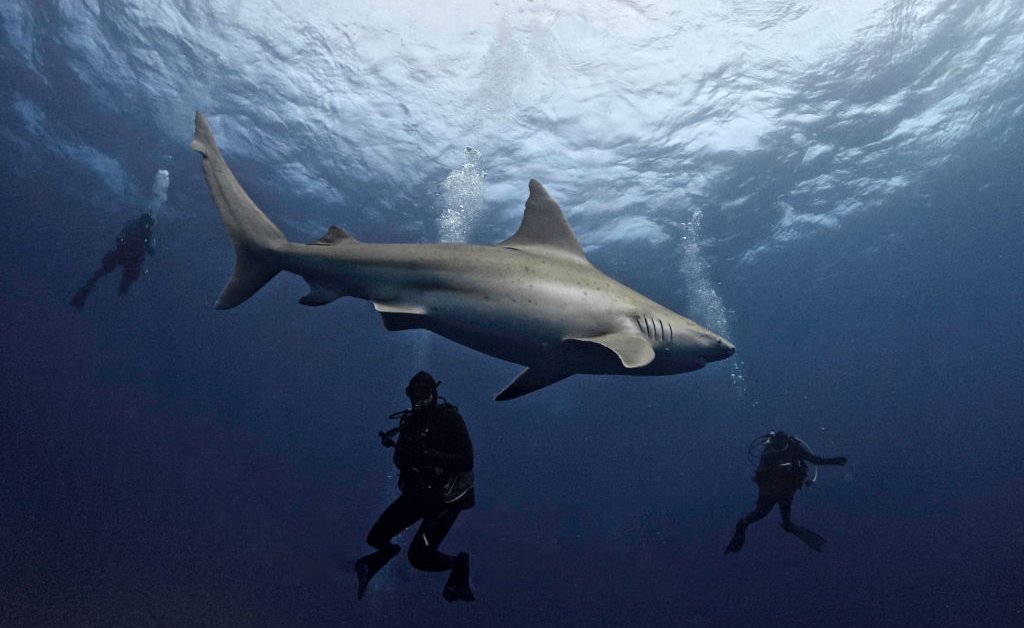From Hollywood To The Ocean: Analyzing Jaws' Influence On Marine Life Perceptions

Welcome to your ultimate source for breaking news, trending updates, and in-depth stories from around the world. Whether it's politics, technology, entertainment, sports, or lifestyle, we bring you real-time updates that keep you informed and ahead of the curve.
Our team works tirelessly to ensure you never miss a moment. From the latest developments in global events to the most talked-about topics on social media, our news platform is designed to deliver accurate and timely information, all in one place.
Stay in the know and join thousands of readers who trust us for reliable, up-to-date content. Explore our expertly curated articles and dive deeper into the stories that matter to you. Visit Best Website now and be part of the conversation. Don't miss out on the headlines that shape our world!
Table of Contents
From Hollywood to the Ocean: Analyzing Jaws' Influence on Marine Life Perceptions
A cultural phenomenon, Steven Spielberg's Jaws captivated audiences worldwide in 1975, leaving an indelible mark on popular culture. But beyond its box office success, the film's impact reverberates even today, significantly shaping public perception of marine life, particularly sharks. This article delves into the long-lasting consequences of Jaws' portrayal of sharks and its influence on conservation efforts.
The "Jaws" Effect: Fear and Misunderstanding
Jaws presented a terrifying image of great white sharks as relentless, man-eating monsters. This portrayal, while fictionalized, profoundly impacted public opinion. The film sparked a widespread fear of sharks, leading to increased shark hunts and a dramatic decline in some shark populations. This negative perception continues to this day, hindering conservation efforts and creating a significant challenge for marine biologists working to protect these crucial apex predators.
The film's impact wasn't solely limited to great whites. The generalized fear created a negative halo effect, impacting the perception of all sharks, even those posing no threat to humans. This widespread misunderstanding has fueled unnecessary fear and contributed to the unsustainable culling of numerous shark species.
The Ripple Effect: Conservation Challenges and Misinformation
The legacy of Jaws continues to hinder shark conservation initiatives. Many people still harbor irrational fears, fueled by the film's iconic imagery. This fear translates into a lack of support for shark protection policies and funding for research. The misinformation perpetuated by the film and subsequent media representations has created a significant obstacle to overcome.
Combating this misinformation requires a multi-pronged approach:
- Education and Awareness: Public education campaigns are crucial to dispelling myths and presenting a more accurate picture of shark behavior and their vital role in the marine ecosystem. Organizations like the are leading the charge in this area.
- Scientific Research: Continued scientific research helps provide data-driven insights to counter the sensationalized narratives. Understanding shark behavior and ecology is essential for effective conservation.
- Film and Media Representation: The portrayal of sharks in modern media needs to be more responsible and accurate, showcasing their importance in maintaining healthy ocean ecosystems.
Beyond the Fear: Understanding the Importance of Sharks
Sharks are apex predators, playing a critical role in maintaining the balance of marine ecosystems. Their decline can have cascading effects throughout the food web, impacting biodiversity and the overall health of the oceans. Understanding their ecological importance is crucial for promoting their conservation.
The reality is far different from the cinematic portrayal in Jaws. While some shark attacks occur, they are exceptionally rare. The risk of being struck by lightning is statistically higher than being attacked by a shark.
Moving Forward: A Call for Responsible Representation
While Jaws remains a cinematic masterpiece, its legacy highlights the power of media in shaping public perception. It's crucial to learn from the past and work towards a future where the portrayal of marine life is accurate, responsible, and promotes conservation efforts. We need to move beyond the fear instilled by Jaws and embrace a more informed understanding of these magnificent creatures and their importance to our planet.
Call to action: Learn more about shark conservation and support organizations dedicated to their protection. You can make a difference in ensuring the survival of these vital ocean inhabitants.

Thank you for visiting our website, your trusted source for the latest updates and in-depth coverage on From Hollywood To The Ocean: Analyzing Jaws' Influence On Marine Life Perceptions. We're committed to keeping you informed with timely and accurate information to meet your curiosity and needs.
If you have any questions, suggestions, or feedback, we'd love to hear from you. Your insights are valuable to us and help us improve to serve you better. Feel free to reach out through our contact page.
Don't forget to bookmark our website and check back regularly for the latest headlines and trending topics. See you next time, and thank you for being part of our growing community!
Featured Posts
-
 Consumers Energy To Implement Power Shutdown For 2 000 Customers On July 12
Jul 05, 2025
Consumers Energy To Implement Power Shutdown For 2 000 Customers On July 12
Jul 05, 2025 -
 Federal Charges Filed Against Viral Anti Ice Protective Gear Provider
Jul 05, 2025
Federal Charges Filed Against Viral Anti Ice Protective Gear Provider
Jul 05, 2025 -
 Fireworks In Florida Your Complete Fourth Of July Guide To Legality
Jul 05, 2025
Fireworks In Florida Your Complete Fourth Of July Guide To Legality
Jul 05, 2025 -
 Dc Comics Characters Come Alive At Six Flags Magic Mountains Annual Fest
Jul 05, 2025
Dc Comics Characters Come Alive At Six Flags Magic Mountains Annual Fest
Jul 05, 2025 -
 Iran Attack Unpacking The Extent Of Us Involvement
Jul 05, 2025
Iran Attack Unpacking The Extent Of Us Involvement
Jul 05, 2025
Latest Posts
-
 Positive Aussichten Fuer Bayer Goldman Sachs Erhoeht Kursziel
Jul 05, 2025
Positive Aussichten Fuer Bayer Goldman Sachs Erhoeht Kursziel
Jul 05, 2025 -
 Atlanta Police Officer Involved In Midtown Bar Fight 911 Call Details Emerge
Jul 05, 2025
Atlanta Police Officer Involved In Midtown Bar Fight 911 Call Details Emerge
Jul 05, 2025 -
 Bayer Chef Sieht Glyphosat Rueckgang Als Positiv Was Steckt Dahinter
Jul 05, 2025
Bayer Chef Sieht Glyphosat Rueckgang Als Positiv Was Steckt Dahinter
Jul 05, 2025 -
 Panama Upsets Australia 0 1 In International Womens Football Friendly
Jul 05, 2025
Panama Upsets Australia 0 1 In International Womens Football Friendly
Jul 05, 2025 -
 Increased Fire Risk Leads To Stage 1 Fire Restrictions On Parts Of Kaibab National Forest
Jul 05, 2025
Increased Fire Risk Leads To Stage 1 Fire Restrictions On Parts Of Kaibab National Forest
Jul 05, 2025
